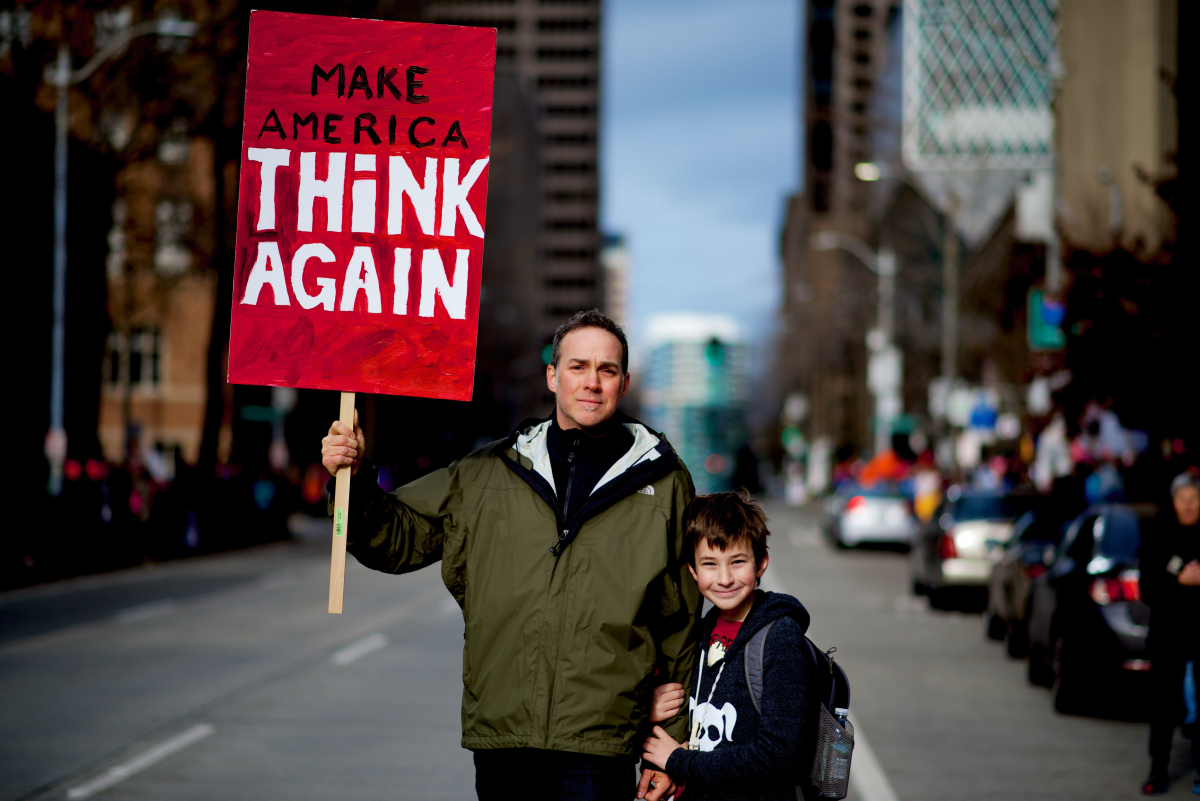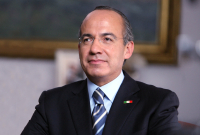This article was originally published by Huffington Post and appears here as part of Canada's National Observer's collaboration with Climate Desk.
President Donald Trump touched down in California on Monday to survey the wildfire damage and immediately launched into his usual talking points about poor forest management while denying the role of climate change.
Trump arrived in Sacramento as more than two dozen major wildfires burned across the state. More than 2 million acres in the state have burned this year, a nearly 2,000% increase in land burned compared to this time last year.
At a roundtable discussion about the wildfires, California Secretary for Natural Resources Wade Crowfoot said Trump’s focus on forest management was obscuring the grim reality that climate change was behind the historically high temperatures and years of drought.
“It will start getting cooler. You just watch,” Trump fired back at Crowfoot, adding, “I don’t think science knows actually.”
Minutes before, when Trump had just disembarked his plane, reporters repeatedly asked him to acknowledge how climate change has influenced the situation. But Trump wouldn’t budge on his claims that the disaster is simply a matter of cleaning up the state’s forests.
“I think this is more of a management situation,” Trump said to one of the reporters. “If you look at other countries, if you go to other countries in Europe, Austria and Finland and numerous countries ... they don’t have problems like this,” even with “explosive” trees.
“When trees fall down, after a short period of time they become very dry — really like a matchstick ... and they can explode,” he continued. “Also leaves. When you have dried leaves on the ground, it’s just fuel for the fires.”
For the last three and a half years, the Trump administration has denied and downplayed the role of climate change in driving extreme wildfires in the West. During the wildfires that plagued California in 2018, for example, then-Interior Secretary Ryan Zinke told KCRA-TV that the inferno had “nothing to do with climate change,” only to declare days later that “of course” it’s a factor.

Instead, Trump and his team have spent their time threatening to withhold federal relief funds for California, using the disasters to push partisan policies and working to boost logging on millions of federal acres. The president has also repeatedly blamed California’s wildfire problem on the state, claiming that it has failed to properly manage ― more specifically, “rake” and “sweep” ― its forests. The reality, however, is that the federal government owns far more of the state’s 33 million forest acres than the state does ― and it is on those federal lands that some of the state’s largest fires have burned.
“We acknowledge our role and responsibility to do more in that space,” Gov. Gavin Newsom said at the roundtable Monday. “But one thing is fundamental — 57% of the land in this state is federal forest land, 3% is California [land].” He stressed that California needs support from the federal government in order to address the infernos.
Earlier on the airstrip, Trump had nothing to say when a reporter asked him if he viewed climate change as an issue in California at all.
“You’ll have to ask the governor that question. I don’t want to step on his toes,” said Trump, who regularly picks fights with Newsom over his policies.
The only time the president came close to acknowledging that climate change is real was when he took a jab at other countries.
“When you get into climate change, well, is India going to change its ways? Is China going to change its ways? Is Russia?” he asked, concluding, “We’re just a small speck.”
The United States is one of the world’s biggest contributors to greenhouse gas emissions, contributing more than both India and Russia combined.
While the president has shown little sympathy for the Democratic state of California during its yearly bouts with wildfire, he has stood ready to assist red states facing disaster. His favoritism for states that helped elect him in 2016 has been on full display in the run-up to the 2020 election.
When a reporter asked him about that Monday, Trump replied, “That’s a nasty question.”





Comments